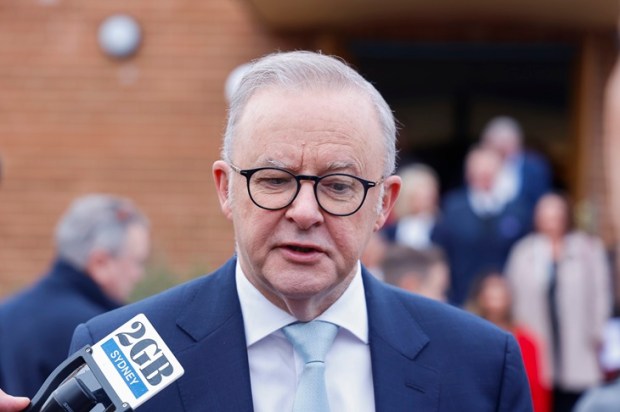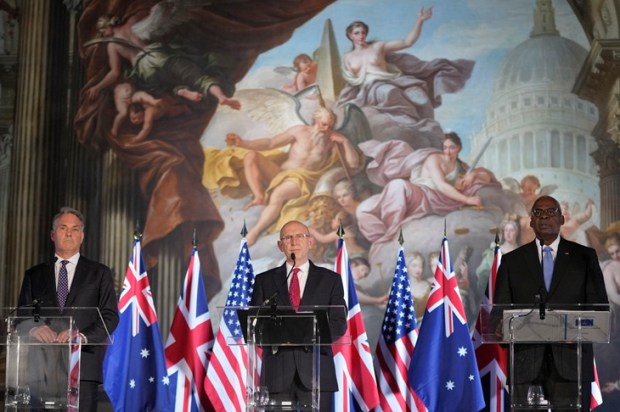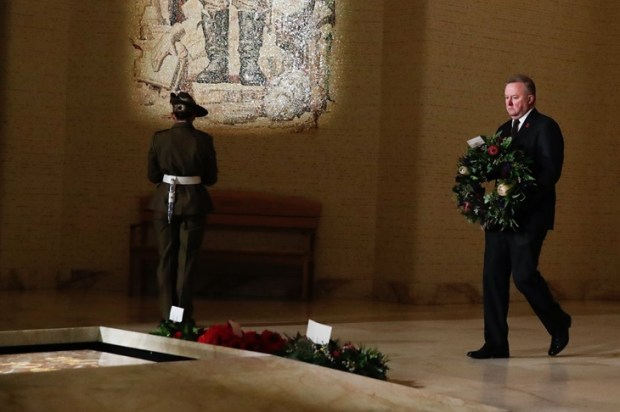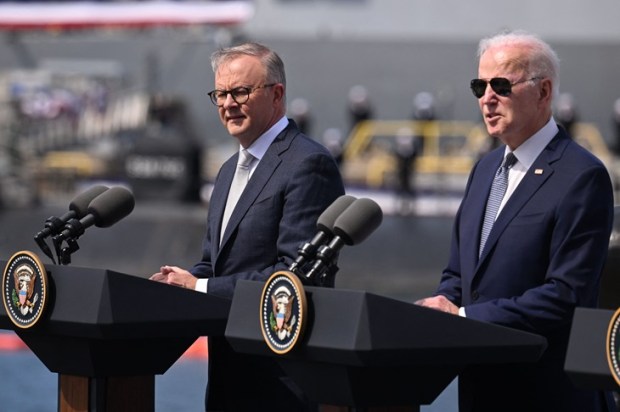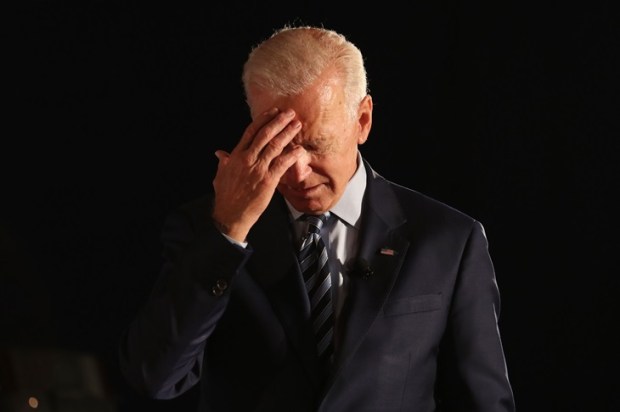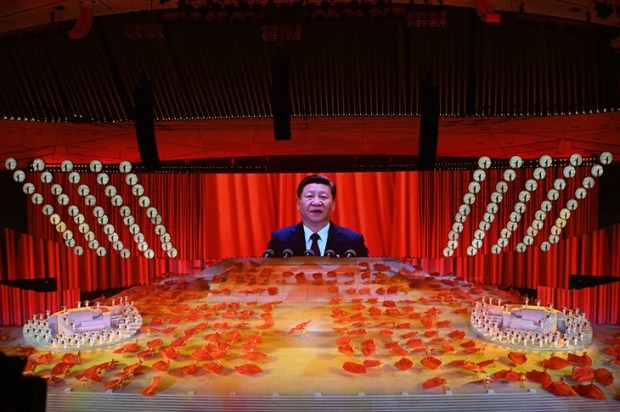The lesson to learn about the American tariff war is that it is wiser to save what you have to bargain with until after the threats have been made. If the Albanese government thought by getting to Washington early they’d stave off tariffs against Australian steel and aluminium they now have another thing coming. Given Trump is, above all, a showman it would have looked far better from Trump’s point of view had he been able to crow that by throwing his weight around he’d pushed Australia to hand over $800 million rather than getting the $800 million a few days before he’d made the announcement. Having threatened Canada and Mexico with 25 per cent tariffs he gave them both a 30-day reprieve and in return both made a modest boost in their efforts to secure America’s borders. This allowed him to boast a victory to his supporters. It’s best to play the game, especially if you’re handing over the money anyway.
As Australia’s Ambassador in Washington, Kevin Rudd, was recently at pains to point out, Australia imports far more from America than it exports. All eyes are now on him to ensure that he can do what Joe Hockey, Australia’s Ambassador in Washington during the first Trump administration, did for Australia and get an exemption on tariffs on steel and aluminium. Given Rudd’s past criticism of Trump – recently a video of Rudd calling Trump a village idiot has resurfaced – it could be a difficult task.
Australia might not have an ambassador who plays golf but it does have a long history of being a loyal ally. Perhaps this might count. The first time Australian and American troops fought together was at the Battle of Hamel in the last year of the first world war. They went on to fight together most notably during the second world war, the Korean War, the second Indochina War, the first Gulf War, and Operation Iraqi Freedom. In Operation Iraqi Freedom, President George W Bush, unable to get a mandate from the United Nations to invade Iraq put together a coalition of countries which included Australia, Denmark, the Netherlands, Poland, and Great Britain. In his Address to the Nation in 2003, George W Bush informed his fellow citizens that ‘American and coalition forces are in the early stages of military operations to disarm Iraq, to free its people and to defend the world from grave danger’. Under President Trump, the idea of America freeing oppressed people in other countries and defending the rest of the world from grave danger is looking increasingly unlikely.
Despite recent expansionist pronouncements involving Greenland, the Panama Canal, and creating an American-owned ‘Riviera of the Middle East’, all signs point to an American people tired of military commitments overseas that have little to show. America has been isolationist before. After their successful engagement in the first world war, Congress blocked the United States from joining the League of Nations, a peace-keeping international institution that had been their own President’s most important policy at the Paris Peace Conference in 1919. In 1919 America, given its dominance on its own continent and its strongly felt adherence to its Monroe Doctrine, felt it could afford to isolate itself from the rest of the world.
But the world 100 years ago is not the same as the world today.
In that address of March 2003, President George W Bush went on to say – and this was less than two years after the shocking attack on the Twin Towers – ‘We will meet … (the) threat now, with our Army, Air Force, Navy, Coast Guard, and Marines, so that we do not have to meet it later with armies of firefighters and police and doctors on the streets of our cities.’ It’s likely every American listening to that phrase would have immediately seen the streets of Lower Manhattan, people running, covered in dust and fire trucks passing them heading in the opposite direction. But in today’s world – where the Los Angeles fires of January have ceased to be news in any publication other than the Los Angeles Times – 9/11 seems a very long time ago. And whilst no one wishes for an attack on America or America’s interests, it’s likely that this is what it would take for American people to support again a long-term military commitment overseas.
Australia has to move quickly and continue to forge other alliances that may prove more reliable than anything we can count as far as the United States is concerned. Recently, New Zealand was concerned to see Mark Brown, the Prime Minister of the Cook Islands, travel to China looking for a partnership on infrastructure developments as well as trade. This should be a concern for Australia as well but at the moment the Albanese government is too distracted by the blitzkrieg of policies and ideas coming out of America to juggle all the foreign policy balls successfully. America’s foreign policy is likely to be shaped by the same three questions the State Department is having to ask itself on the question of foreign aid – namely: Does it make America safer? Does it make America stronger? Does it make America more prosperous? In the immediate future American aid to the Pacific Islands does not meet this criteria. Australia has to continue to fill the gap this will create, and more, because in the immediate future America’s economic and political relationship with us does not meet this criteria either.


